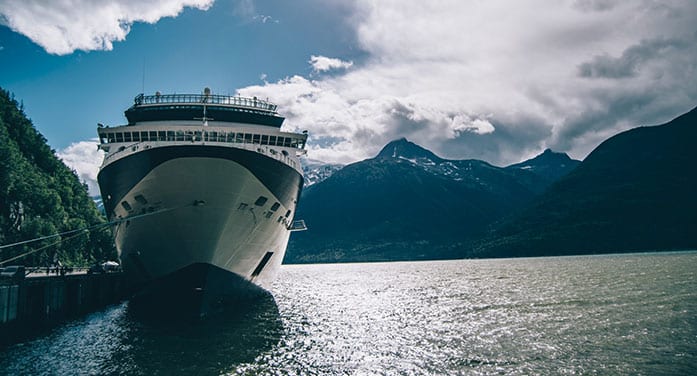 You may think British Columbia has a cruise ship industry because of our great location, marvellous climate and amazing attractions, natural or otherwise.
You may think British Columbia has a cruise ship industry because of our great location, marvellous climate and amazing attractions, natural or otherwise.
You would be wrong.
We have a cruise industry here because of actions by the United States 100 years ago to put America first.
The U.S. wanted to ensure that it had a marine industry. In 1920, it passed legislation commonly called the Jones Act. It required that vessels going between American ports be flagged, crewed, owned and built in the United States.
The law was needed because building a ship in the U.S. costs five times as much as elsewhere. Operating an American ship is three times as expensive.
Voyages that involved ports outside the United States weren’t limited by these costly restrictions. Marine operators could drastically reduce their costs by including non-U.S. ports on their itineraries.
Cruises to Alaska from the lower 48 states are very popular, but going directly to that state from Seattle, Portland or Los Angeles under the Jones Act would make them prohibitively expensive. Build in a call in Vancouver, Victoria or even Prince Rupert and costs and prices drop. You’re now globally competitive.
Alaskan cruises and the Jones Act have given British Columbia an impressive and growing cruise industry. If not for the COVID-19 pandemic, over 1.2 million cruise visitors would have shown up this year in Vancouver alone. Some 310 ships were expected to call this season, generating about $3 million per call. Adding up the numbers shows $2.5 billion coming into the B.C. economy every year. This translates into 15,000 jobs.
Pre-pandemic, the cruise industry was on an upward growth path, with plans for more and bigger ships, more passengers and more voyages.
We don’t know how long it will take for cruising to get back to its long-term trends.
What we do know is that the industry was dead in the water or dead at the dock last season. This summer is going to be no better for B.C., with ports closed to all but the smallest cruise ships until February 2022. This is causing great pain and loss.
But British Columbia isn’t the only place hurting from the lack of cruise ships. Alaska has been hit even harder. That state depends on three industries: fish, energy and tourism. Fish are now harder to find and long-term prospects for Alaska’s carbon-based energy aren’t great.
Tourists are vital. In 2018, Alaska welcomed 1.2 million cruise ship visitors, about the same as Vancouver and largely the same people. Alaska’s total population is only just over 730,000 and many of those people really suffered when the cruise ships didn’t show up last year.
To ensure that Alaska’s key industry won’t be devastated another year, the state government is putting pressure on the American federal government to exempt it from Jones Act restrictions. The state wants non-U.S. cruise ships to be allowed to go straight from continental U.S. ports to Alaska, cutting out B.C. entirely.
There’s precedence for such an exemption. After a hurricane, Puerto Rico received help to control the costs of bringing in needed U.S. aid. I haven’t found any evidence of the exemption being time-limited.
For the cruise-dependent tourist sector in British Columbia, especially Vancouver, it was difficult to survive last summer’s lost season. Losing this summer’s traffic will be even more lethal. And an ongoing exemption, keeping ships from stopping in B.C., would mean the death of a major component of its tourist industry.
Businesses and areas that looked upon cruisers as their major customer base will no longer have a reason to exist. Others will find their clientele drastically reduced. Granville Island and Gastown businesses come to mind, and don’t hold your breath waiting to see those horse-drawn carriages return to Stanley Park.
Are the provincial or the federal government aware of the magnitude of the impact of granting Alaska’s request, and the high probability of such a change becoming permanent?
An ongoing exemption would be very much in the interest of the cruise operators and they’re not without influence.
The future is at risk for all those whose work touches the cruise ship industry, including those serving visitors, supplying ships or working at the Port of Vancouver.
Now is the time to make sure Canadian government officials and politicians at all levels, as well as the public, know what an exemption to the Jones Act can do.
Steps must be taken to ensure that British Columbia’s and Canada’s interests in this sector are taken into consideration.
If not, we will find 1.2 million cruise ship passengers shopping in Seattle’s Pike Place Market rather than Vancouver’s Granville Island.
Troy Media columnist Roslyn Kunin is a consulting economist and speaker. For interview requests, click here.
The views, opinions and positions expressed by columnists and contributors are the authors’ alone. They do not inherently or expressly reflect the views, opinions and/or positions of our publication.


